Oh, the Steam Next Fest is such a welcome breath of fresh air.
I know that, technically, there was the Steam Game Festival in February this last year which was essentially this same concept. I know that - even though it feels like a lifetime ago - you once could run to your local game store or Borders (yes, I am dating myself) to get a physical gaming magazine. If you were oh-so-very-lucky… this month’s edition came with a CD filled with game demos to try out.
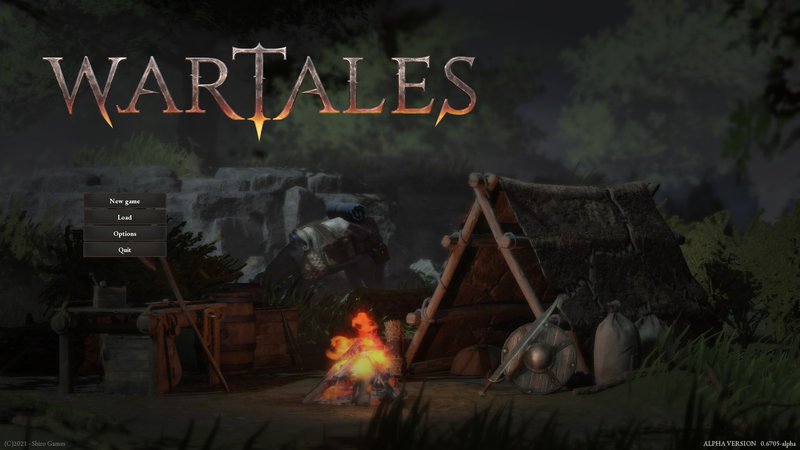
Yet, coming right on the heels of corporate presentation after corporate presentation during E3 2021, the Steam Next Fest has felt revolutionary. I’ve been so used to Steam events being just mad dashes for piles of games I’ll never play that I wasn’t expecting how refreshing it was to not feel pushed to purchase anything this last weekend. Instead, I was able to pick and choose through hundreds of games to sample at my own leisure.
After trying out a bunch of demos, I wanted to highlight a few games specifically. They aren’t in any particular order, but have been picked because of their variety and the unique experiences they bring with them.
Terra Nil: Finally, Environmentalism!
Simulation games are usually all about growth. Expansion. Colonization. These are concepts that have been venerated for the longest time, but recently have come into question. Is constant growth sustainable? What is the cost to always build more without worrying about what it does to the planet? Just because we can make something, should we? Terra Nil takes the Sim City formula and turns it on its head. Your goal isn’t to build a city, but recover the ability to sustain nature.
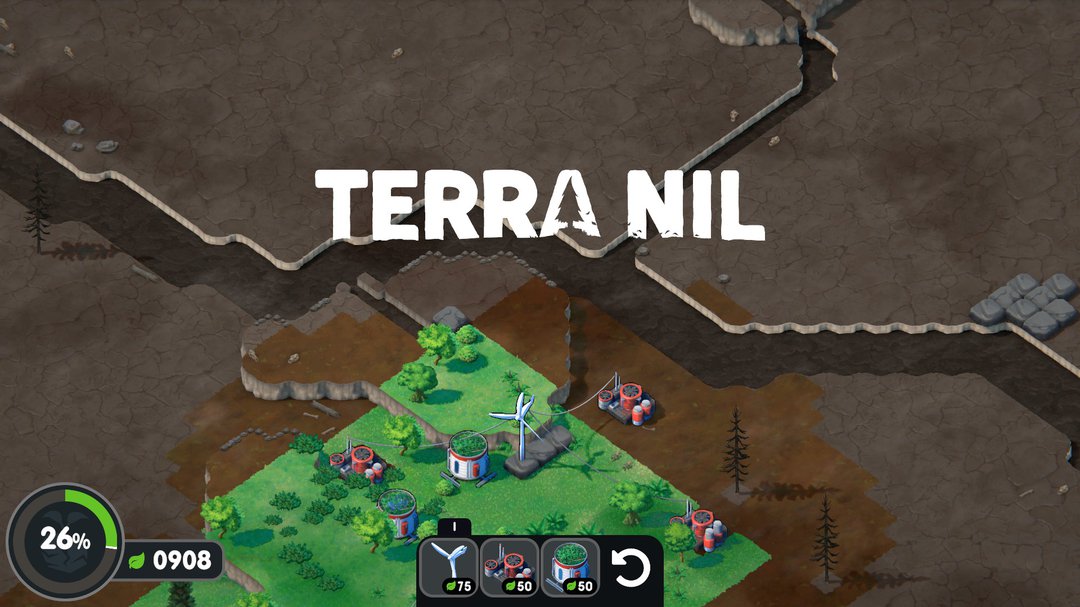
Having the Title appear along with music right as you first get greenery on the map was a masterful touch.
The grid of land you are first given is barren - the ground itself is toxic. Bringing the world back to life involves creating power, reclaiming the soil, and letting the barest amount of grass to find its way into the drab world. Once you get the barest essentials up, another level of complexity unlocks: creating biomes of forests, expanses of lilypad filled wetlands. The map becomes more and more colorful as animals begin to appear, roaming where they had once only been toxic earth.
Terra Nil is a magical experience. Just bringing water back to a dry riverbed gives you a sense of accomplishment other games struggle to achieve. As life returns to the world, the ambient sounds of nature increase. The music becomes more triumphant. When you get to the last step of removing your buildings to allow nature to exist in peace, the sense of serenity is hard to describe. You haven’t built anything in the standard sense, yet the feeling of accomplishment is powerful.
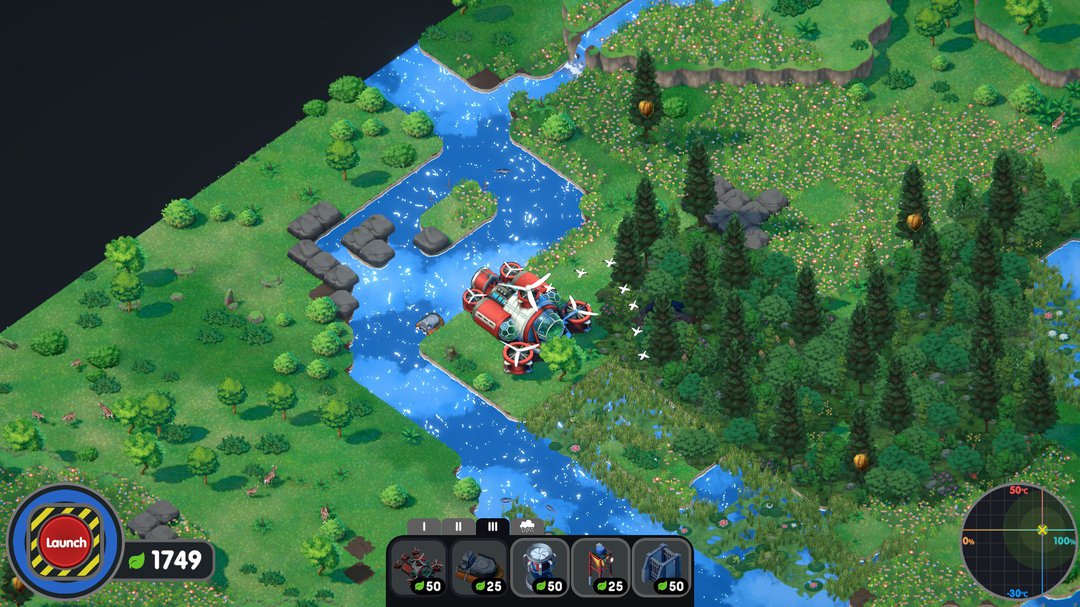
Seeing a brown boring world become lush with life is so incredibly rewarding.
I heartily recommend this demo to anyone - it’s a solid playthrough, starting on a randomly generated map. I look forward to see the ‘campaign’ to restore an entire world in a full game. I'll bite if the full purchase adds a little more complexity so each game doesn't feel the same, but Terra Nil is certainly on my wishlist now. No release date yet, sadly.
Swarm The City: But What You Could Have Fire Zombies?
Onto a game that’s a little rougher around the edges, but has the potential to be something thoroughly enjoyable. Swarm The City is a zombie game, but one where you control the zombies rather than trying to fend them off. Set in 1986, you are a forgotten evil ruler named Karr The Great, ruler of zombies. You’ve been dug up in what appears to be a suburban grid with a fraction of your power: time to create the apocalypse!
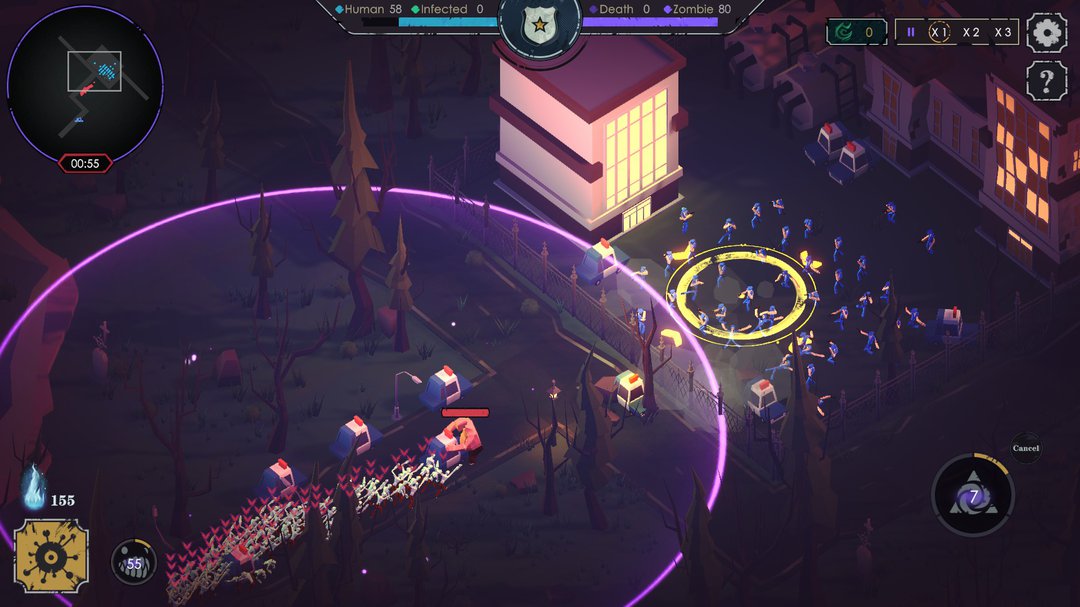
The police are about to have a very, very bad day.
Swarm The City plays like a Real-Time Strategy game mixed with the classic Pandemic Inc. You start a mission with the ability to possess several humans into zombies, and from there have to bring the total destruction of all humans and buildings in that level. There is a campaign set up in which you play the first three chapters of during the demo, adding complexity and new design elements as you go.
I wasn’t sure about Swarm The City until I got to the third chapter. The levels felt a little simple and slow, the graphics felt rough around the edges, and parts of the UI weren't always very clear. I was beginning to feel underwhelmed, but once I hit chapter three (don’t worry: the first chapters are probably less than 10 minutes each), I saw the real potential. I was laughed maniacally as I saw hundreds of humans panic as my growing ball of zombies became larger.
Unleashed onto a real city filled with police and hospitals and factories that build defenses, you suddenly have to try and coordinate your hordes. You get zombie generals that can cause siege damage to walls, resist falling apart from disinfectant, or even throw fireballs. As the city guard escalates, you are forced to stay ahead by having enough zombies to overwhelm whatever resistance the city tries to throw at you.
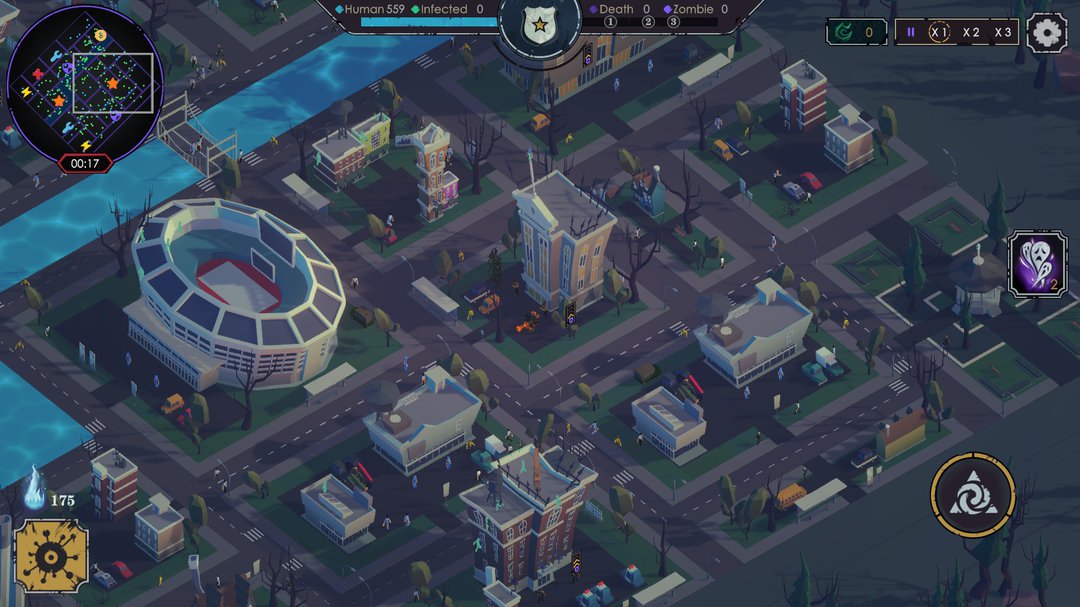
Swarm The City is at its best when you are given large maps. What's the best line of attack? Can you create a horde before city responds to your presence?
I definitely want to see what this game becomes in a few months. If the menus become easier to understand, and if they add in more variety (There was only one type of ‘boss’ for the end level boss battles so far), I can see this Swarm The City being an easy impulse purchase. Perhaps it's not the deepest game on this list, but sometimes you just want to cause some chaos and have some laughs.
Swarm The City is scheduled to be released in August 2021.
Wartales: The Scary Life Of An Adventurer
I was drawn to trying this bleak looking game simply because of how much I adore Northgard, a previous offering from Shiro Games. I know they can take a genre and give it a quirky spin. Wartales is no exception.
Wartales is a game about being a mercenary company trying to survive in a medieval world. And I do mean survive: this is not a high fantasy game. No, as your band of survivors wander the landscape to discover new locations, your food dwindles and exhaustion sets in. You need to collect bounties or fight wandering traders to get resources and cash, gaining reputation to hire on other lone swordsmen and thieves to your party.
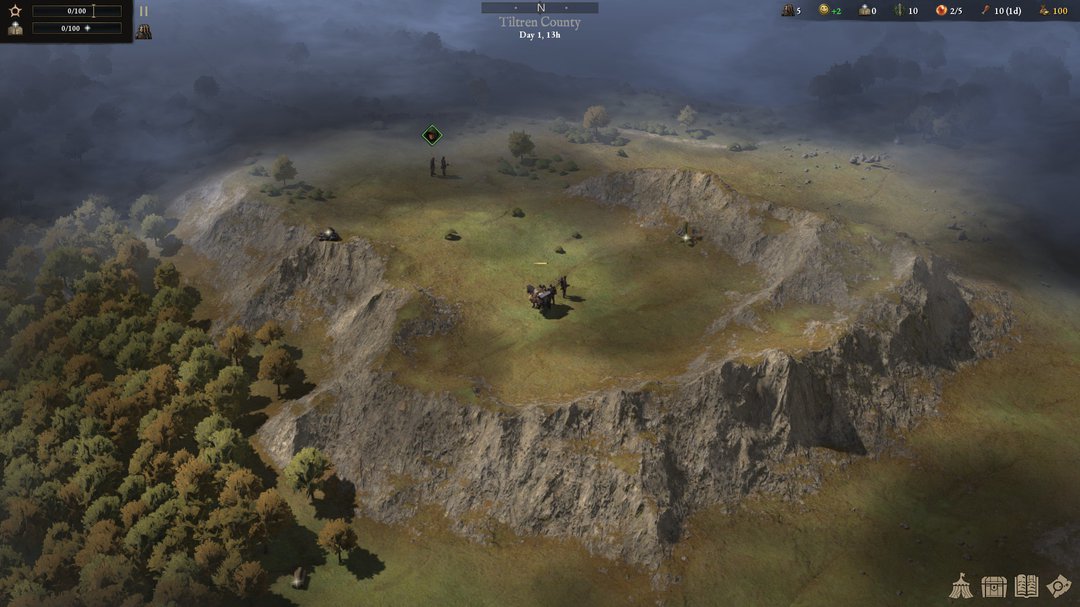
Combat graphics felt generic, but the overland map and the towns were wonderfully rendered and fun to explore.
The demo for this game is...tough. Unlike other games where the tutorial feels like it drags on forever, here they just drop your party out into the world and tell you to explore and see what’s possible. I immediately found a town, got robbed, took a bounty too strong for my team, and got crushed in combat. A little more experimentation had me realizing I could give professions to my team like herbalist or blacksmith, and the little piles of supplies found in the wild suddenly become immensely valuable.
My brief time with Wartales proved to me that I will definitely get this game. It also had me turn off the demo pretty fast. I had no context, no story, no explanation of what was going on. I know I’m going to enjoy the punishing choices I’ll have to make to keep my warband roster strong - you can lose members during combat or even outside combat - but losing repeatedly without understanding the game yet and without story didn’t feel great.
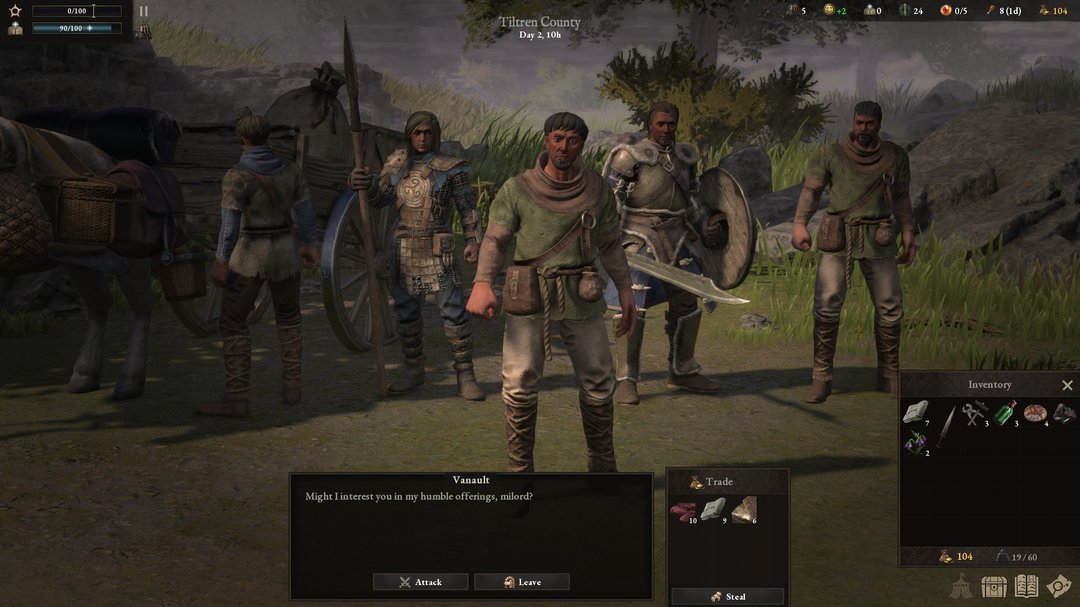
It's a nice touch that when you run into travelers, you get a good look at what equipment they have. Are you desperate enough to attack?
Wartales is due to hit early access in the next few months, with about a year of refining and content being added before full release.
The Fermi Paradox: The Rise And Fall of Civilizations
While Terra Nil is an incredibly wonderful concept with great ideals, I think the most ambitious and daring game I played during this event was The Fermi Paradox. While it could be boiled down to being a ‘choose your own adventure’ game of sorts, the actual scope of what they are attempting to make is mind-boggling. You aren’t just in charge of whether or not humans go extinct, but if you can make sentient life survive at all.
The Fermi Paradox gets its name from, well, the The Fermi Paradox: the big question as to why we haven’t seen any life out among the stars. Is sentient life doomed to self implode due to planetwide catalcysms or self-destructive instincts? If alien contact was in fact possible, would it just result in destruction? You are ‘the galactic gardener’, and you are tasked with trying to keep civilizations across the galaxy alive.
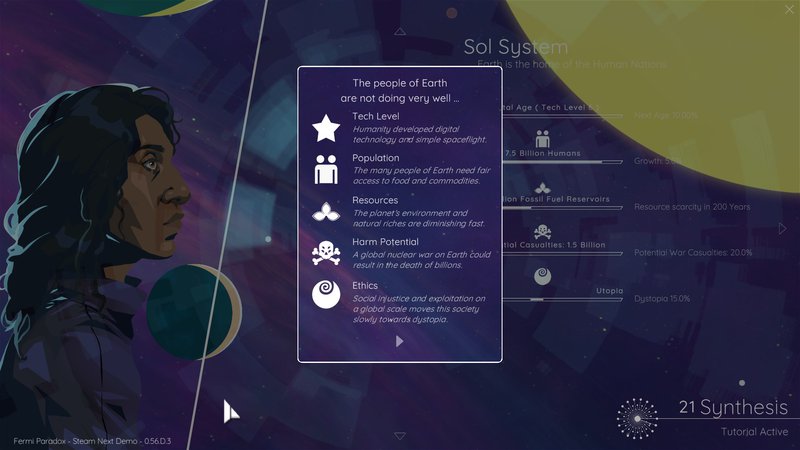
It’s harder than it sounds. During my playthrough of roughly 500 ‘turns’, I ended up in charge of three different species. Humans started at about where we are now, and already in a resource crisis. The Prun, a one-gender species of horselike aliens, were more advanced and with a more peaceful society, but had a problem with their birth rate constantly declining. Halfway through the game, a third planet spawned sentient life in the stone age, creating the Maru: a species of blind raptors who were incredibly aggressive.
The game boasts over 400 large events that might come up during a game, and the demo certainly already had quite the variety. The Maru were fluctuating between advancing into militaristic feudal ages that had them nearly destroying their own resources. The Prun discovered plasma weapons and bombed themselves to under a million survivors.
During a game, you can zoom in on planets to watch their sliders for society and resources and population swing up and down, choosing one of three pop ups to either make them go up, go down, or cause random events. Here’s the trick: if you choose negative actions or stay neutral, you gain some synthesis points. These are your currency to influence the large scale events which occur. When humans advance to lightspeed travel, you can choose an option to create a better society and better tech advancement, or do nothing. Or, perhaps, gain more points by causing scarcity and war.
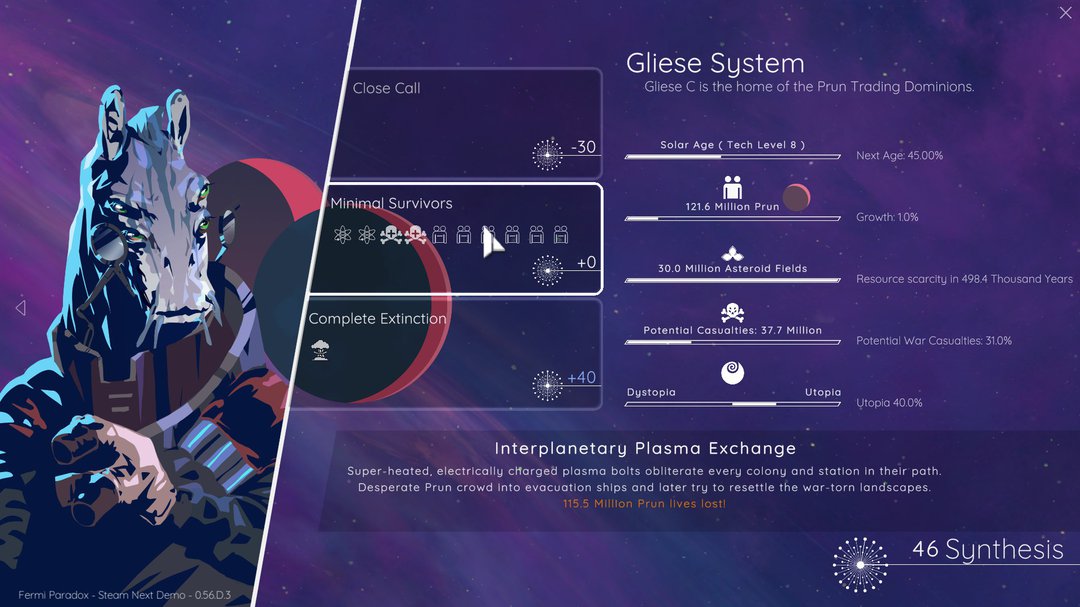
The questions asked by the game are deeply impactful, made all the better by some wonderful art direction for the aliens and scenarios.
During my demo, I caused interplanetary wars, nurtured a species through religious enlightenments, and prevented a comet from causing immediate extinction. The Fermi Project stands as a testament to having you make tough choices to try and save your currency for what you consider truly important moments, all while having you reflect on how precious and vulnerable life can be. Good times.
The Fermi Paradox is scheduled to release into early access in July 2021, and I cannot wait to see what the full game will look like.
All Hail Indie Developers
While it was nice to have E3 back this year, I will fully admit that much of it just felt...the same. Franchises we’ve already seen creating sequels or DLCs, with most AAA games feeling like retreads of what we’ve seen before. In comparison, this last weekend with some free demos was an immense amount of fun.
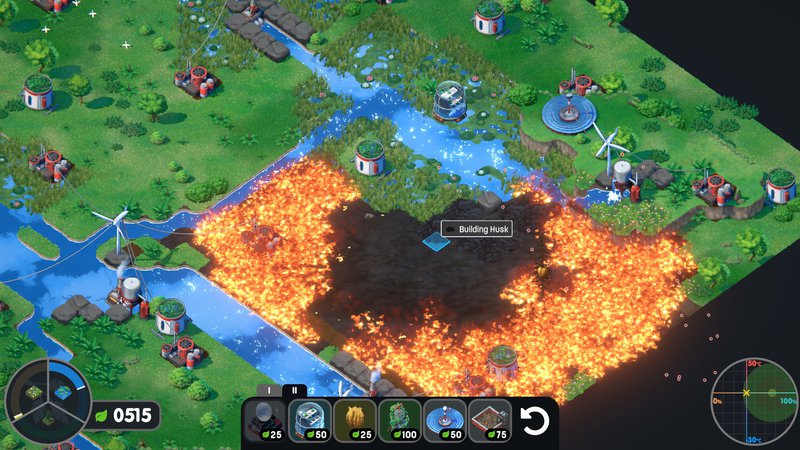
So many games caught my eye. I downloaded a few more demos than these four, but honestly just didn’t have the time to get to all of them with enough depth to properly preview them. The ones listed above I had at least an hour to tinker with: I can firmly state my interest to see the finished project for each of these.
I really hope Steam continues to host these demo events. Not only is it a wonderful way to showcase smaller developers and publishers, but it lets gamers try new things to try and see what else is out there besides yet another live-service extravaganza. In the meantime, I hope you had a chance to find some games you enjoyed this last week! I know I have… especially since all four of these games combined will probably cost the same as one AAA game.